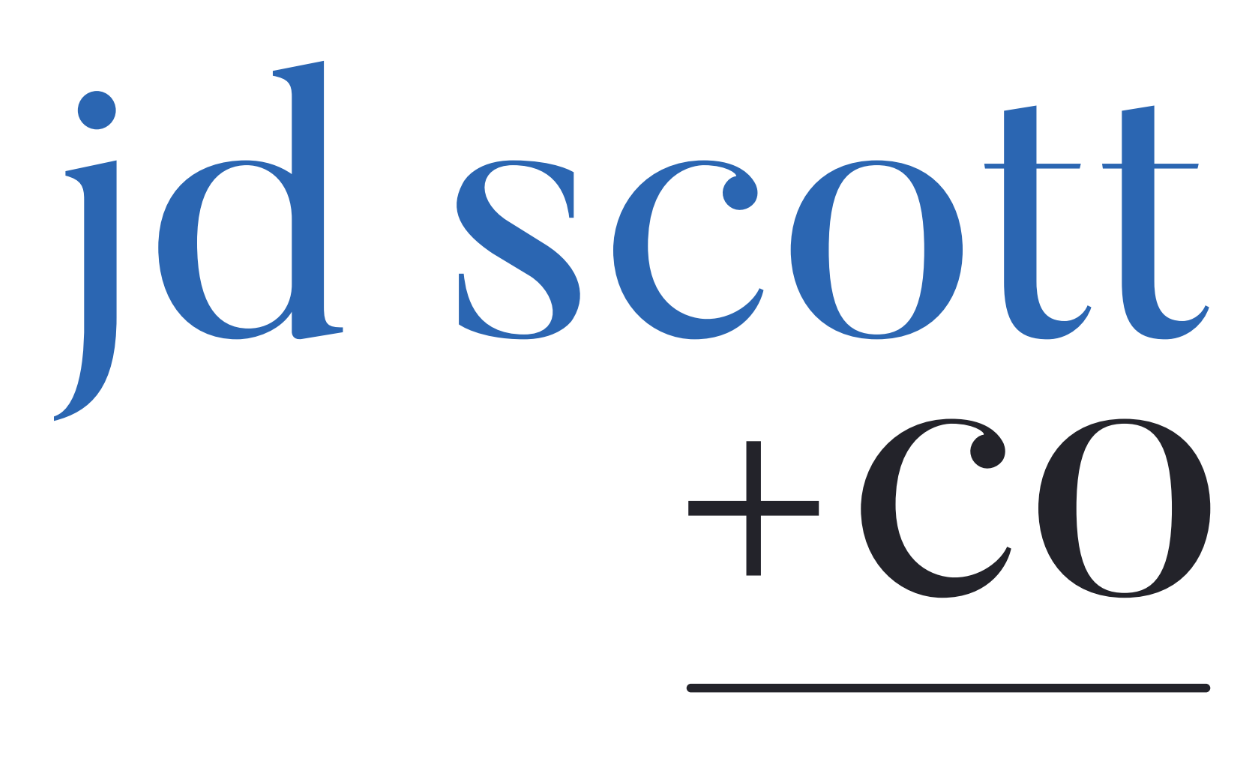Guide to Almanack of Naval Ravikant
In the ever-expanding universe of self-help and personal development literature, “The Almanack of Naval Ravikant” shines like a beacon. Compiled by Eric Jorgenson, this book distills the profound insights of entrepreneur and thinker Naval Ravikant into a guide that is as practical as it is philosophical. Our comprehensive review unpacks the essence of Naval’s wisdom on wealth, happiness, and the pursuit of a meaningful life. Join us as we explore the teachings that have made this book a modern classic in the realms of business and personal growth.
Want a copy of the book?
Table of Contents
Wealth Creation: Beyond Hard Work and Savings
The Concept of Leverage
In “The Almanack of Naval Ravikant,” leverage is identified as a fundamental principle in the pursuit of wealth. Leverage, in its essence, is the strategic use of tools, resources, or the efforts of others to multiply one’s output without corresponding increases in input. Ravikant distinguishes between different types of leverage—labor, capital, and products with no marginal cost of replication—and notes that the latter two are the keys to modern wealth creation.
Capital leverage involves using money to work for you, such as investments that earn while you sleep. Product leverage, meanwhile, is about creating a product that can be replicated endlessly, like software, which costs nothing to distribute once created. Ravikant underscores the power of code and media as tools of leverage that can reach and impact millions without the traditional constraints of time and space.
Specific Knowledge
Specific knowledge is another cornerstone of wealth, according to Ravikant. This is a type of knowledge that you cannot be trained for. If you could be trained for it, then others could be too, and it wouldn’t be as valuable. Specific knowledge is found by pursuing what you are innately curious about and passionate about, to the extent that you almost feel like you are playing when engaging with it.
Ravikant believes that every individual has a unique ability or talent that can be harnessed into specific knowledge. It often comes from hobbies or interests that may not seem immediately profitable or pragmatic. The development of specific knowledge is also about looking where no one else is looking, asking the questions no one else is asking, and synthesizing information in a way no one else can match.
Examples of Application
Naval himself is a prime example of applying these principles. He co-founded AngelList, which is a platform that used leverage to change how startups receive funding. It allows startups to reach a large number of potential investors quickly—a feat that would have taken months or years before.
Beyond Ravikant, other successful individuals have applied these principles. Jeff Bezos leveraged technology and capital with Amazon to transform retail, while JK Rowling used her unique storytelling ability to create the Harry Potter series, which has sold millions of copies worldwide. Both found immense wealth by applying leverage and specific knowledge in ways that were unique to their abilities and resources.
In summary, Ravikant’s approach to wealth creation is not about incremental gains from hard work alone; it’s about exponential gains through leverage and specific knowledge. It’s about finding what you can do better than others, what you enjoy, and then applying leverage to scale it to the benefit of as many people as possible.
Playing the Long-Term Game
The Importance of Long-Term Thinking
Naval Ravikant’s philosophy places significant emphasis on the idea of long-term thinking, which is a recurring theme throughout “The Almanack of Naval Ravikant.” Long-term thinking is about looking beyond the immediate horizon and planning for the future in ways that prioritize sustained success over quick wins. This approach is rooted in the understanding that the most valuable results often come from consistent effort and patience over time.
Naval argues that in a world that’s increasingly focused on short-term gains and immediate gratification, the ability to think long-term is a competitive advantage. He advises that when you focus on short-term tactics, you may win once, but when you focus on long-term strategies, you can win many times over. The power of compounding applies not just to money, but to relationships, learning, and personal development.
Building and Maintaining Long-Term Relationships
According to Ravikant, long-term relationships are the bedrock of both personal happiness and professional success. He believes that these relationships, built on trust and mutual respect, are more rewarding and more resilient to the ups and downs of life. To build and maintain such relationships, one must invest time and energy without the immediate expectation of return.
Naval suggests that in the long run, your network of relationships can become one of the most powerful forms of leverage. When you have a network that trusts you, opportunities come your way without the need for active pursuit. Building such a network requires authenticity, consistency, and generosity. It’s about giving more than you take and helping others without keeping score.
Trust and Reputation in Business and Personal Growth
Trust and reputation are highlighted as currencies that can be more valuable than financial capital. Ravikant explains that your reputation is a ledger of all your past actions as observed by others, and it signals to others what they can expect from you in the future. A strong reputation can open doors and create opportunities that money cannot buy.
In business, a reputation for fairness, integrity, and capability can lead to better deals, partnerships, and access to resources. ersonal growth, a reputation for reliability and wisdom can attract mentors, friends, and opportunities for learning and development.
In this game, patience is not just a virtue; it’s a strategy. The long-term game is about continuous improvement and accumulation of reputation and trust. As Ravikant puts it, “Play long-term games with long-term people.”
Accountability and High-Judgment Decisions
Defining High-Judgment Decisions
Naval Ravikant underscores the importance of high-judgment decisions, which are choices that have significant, long-term consequences. Unlike routine decisions, high-judgment decisions cannot be easily codified and often require deep understanding and intuition. These are the decisions that, when made correctly, can lead to exponential success and wealth creation.
In the context of Ravikant’s teachings, high-judgment decisions are those that factor in complex variables, require a long-term perspective, and often involve uncertainty. They are the decisions that one makes in the face of ambiguity, where the outcomes are not merely incremental but can be transformative. These decisions often involve saying no to short-term gains in favor of potentially greater long-term benefits.
The Relationship Between Accountability and Wealth
Accountability is a central theme in Ravikant’s philosophy of wealth creation. He argues that with great accountability comes great wealth. This is because when you are accountable, especially in a high-stakes environment, you are forced to operate at a higher level of performance and integrity. Being accountable means that your actions and decisions are your own and that you stand by them, for better or for worse.
Ravikant asserts that the modern world rewards those who can take on accountability and manage it effectively. In business, being at the helm of a company or project means that you are responsible for the outcomes. This level of responsibility can be daunting, but it is also what allows for the accumulation of wealth. The more you are willing to be accountable for, the more trust you gain, and the more leverage you can apply to your endeavors.
Strategies for Improving Judgment and Decision-Making Skills
To improve judgment, Ravikant recommends a commitment to lifelong learning and the cultivation of mental models. Mental models are frameworks for thinking that can help you better understand reality and make informed decisions. By learning from diverse fields such as economics, mathematics, psychology, and philosophy, one can develop a robust toolkit for decision-making.
Another strategy is to engage in reflective practices such as writing and meditation. Writing allows you to clarify your thoughts and examine your decision-making processes, while meditation can help you develop intuition and emotional equanimity, which are essential for good judgment.
Ravikant also advises seeking diverse perspectives and engaging with people who challenge your thinking. By exposing yourself to a variety of viewpoints, you can avoid echo chambers and improve your ability to see different angles of a problem.
Lastly, embracing failure as a learning opportunity is crucial. Each misstep is a chance to refine your judgment and improve your decision-making. Ravikant’s approach is not to avoid failure but to fail intelligently, by taking calculated risks and learning from the outcomes.
The Pursuit of Happiness: A Practiced Skill
In the rich tapestry of human pursuit, happiness often stands out as the most elusive and sought-after goal. Traditional views have treated happiness as a state—one that can be reached by achieving certain life milestones or accumulating material wealth. However, Naval Ravikant’s approach in “The Almanack of Naval Ravikant” challenges this paradigm, proposing happiness as a skill that can be honed with practice and habit.
Happiness as a Skill
Ravikant suggests that happiness is not merely a fleeting state to be pursued; it is a daily practice, a skill that can be developed, much like mindfulness or fitness. According to him, happiness comes from the alignment of one’s state of being with one’s perceived life trajectory. It’s not just about being content in the moment, but also about being at peace with where one is going. This requires a deep sense of self-awareness and the ability to find joy in the progression of life itself, rather than just in external outcomes.
Practices and Habits for Happiness
Naval advocates for several practices that can bolster happiness. Meditation is a cornerstone habit that he credits for much of his emotional equanimity. He describes it as a tool for detaching from the noise of the mind and finding peace in the present moment. Another practice is the cultivation of gratitude, which involves regularly acknowledging and appreciating what one has, rather than fixating on what’s lacking. Additionally, he highlights the importance of choosing to focus on positive thought patterns and engaging in activities that are intrinsically rewarding.
Challenging Conventional Happiness
Ravikant’s philosophy questions the conventional wisdom that happiness is a byproduct of success or wealth. Instead, he posits that happiness is an internal process, one that can coexist with external circumstances, regardless of whether they are perceived as positive or negative. He points out the futility of tying happiness to specific achievements, as the goalposts of success tend to move constantly. The real challenge, then, is to find happiness within the journey, not the destination.
The Pillars of Health and Well-being
Naval Ravikant’s insights on health and well-being are profound yet practical, offering a blueprint for anyone looking to enhance their quality of life. He views health as a holistic concept, encompassing both mental and physical aspects, each reinforcing the other.
Mental and Physical Practices Recommended by Ravikant
For Ravikant, mental health is the bedrock of overall well-being. He advocates for daily meditation, which he describes as a tool for mental clarity and focus. Meditation, according to Ravikant, is not about becoming a different person or even a better person; it’s about training in awareness and getting a healthy sense of perspective. It’s not about trying to turn off the thoughts or feelings but learning to observe them without judgment.
Physical health, on the other hand, is maintained through a combination of regular exercise, proper nutrition, and sufficient sleep. Ravikant emphasizes the importance of a workout regimen that suits one’s lifestyle and preferences, advocating for consistency over intensity. His approach to nutrition is simple—avoid processed foods, reduce sugar intake, and listen to the body’s hunger signals. Sleep is non-negotiable; he considers a full night’s rest as critical to cognitive function and emotional balance.
The Science Behind the Practices
The practices Ravikant endorses are grounded in science. Meditation has been linked to a decrease in stress hormone levels and an improvement in symptoms of anxiety and depression. Exercise is well-documented for its endorphin-releasing effects, which can improve mood and energy levels. Good nutrition contributes to overall health, reducing the risk of chronic diseases and improving mental health. Sleep is crucial for brain health, as it is during deep sleep that the brain clears out toxins and consolidates memories.
Practical Tips for Integration into Daily Life
To integrate these practices into daily life, Ravikant suggests starting small and building up gradually. For meditation, even a few minutes a day can be beneficial. Exercise can be as simple as a daily walk or a routine that combines strength, flexibility, and cardiovascular health. Nutritional changes can begin with substituting one unhealthy food choice for a healthier option each week. As for sleep, setting a regular bedtime and creating a pre-sleep routine can signal to the body that it’s time to wind down.
Lifelong Learning Through Voracious Reading
Naval Ravikant places a high value on continuous learning, emphasizing that the pursuit of knowledge is one of the most reliable paths to personal growth and success. His approach is not through formal education but through self-directed learning, particularly through voracious reading.
Self-Education as a Path to Mastery
Ravikant suggests that true expertise and knowledge come from a relentless pursuit of understanding. It’s not about acquiring facts for the sake of it but about deepening one’s grasp of subjects that resonate with one’s interests and passions. He encourages readers to become autodidacts, learning from the vast resources available—from books to online courses—tailoring their education to their unique path.
The Benefits of Deep Reading Over Wide Reading
While wide reading—consuming a vast number of books superficially—can be beneficial, Ravikant advocates for deep reading. This involves engaging with a book thoroughly, taking the time to understand its messages, and reflecting on its teachings. He often mentions the idea of reading a good book multiple times, each time peeling back layers of meaning and integrating its insights into one’s life.
Methodologies for Effective Learning
To maximize the benefits of reading, Ravikant advises readers to be selective, choosing quality over quantity. He recommends focusing on books that have stood the test of time or that come highly recommended by individuals one respects. When reading, taking notes and summarizing key points can help solidify the material in one’s mind.
Ravikant also suggests teaching as a method of learning. By explaining a concept to someone else, you not only help others learn but also enhance your own understanding. This practice can reveal gaps in knowledge and encourage further exploration.
Embracing Personal Responsibility
Naval Ravikant’s discourse on personal responsibility is an empowering call to action for individuals seeking agency in their lives. “The Almanack of Naval Ravikant” presents self-rescue and personal responsibility not just as concepts but as practical imperatives for achieving personal growth and happiness.
Self-Rescue as a Foundation for Growth
Ravikant posits that the most significant step one can take toward growth is to embrace the idea that you are the only one who can change your life. This mindset shift from external to internal locus of control is pivotal. It’s about moving away from blaming circumstances or relying on others for rescue and instead, taking ownership of one’s actions and their consequences.
The Mindset of Personal Responsibility
Adopting a mindset of personal responsibility involves acknowledging that while you cannot control all the events that happen to you, you can control your response to them. This approach is liberating because it places the power back into the individual’s hands. Ravikant suggests that this mindset leads to a more proactive life stance, where one actively seeks solutions and makes decisions that align with their personal values and goals.
Action Steps for Assuming Responsibility
To take responsibility for different life aspects, Ravikant recommends starting with self-awareness. It involves regular self-reflection, understanding one’s strengths and weaknesses, and recognizing patterns in behavior and decision-making. Setting clear goals and working towards them with discipline is another step. Ravikant encourages the setting of systems over goals, where the focus is on the process rather than the outcome.
He also speaks about the importance of financial independence as a form of personal responsibility. By securing one’s financial future, an individual gains the freedom to make choices that are in line with their true self, rather than choices dictated by economic necessity.
Conclusion
In wrapping up the book review, it’s clear that “The Almanack of Naval Ravikant” provides not just a philosophical outlook but a practical guide to life. The key points discussed throughout—wealth creation through leverage, long-term relationship building, high-judgment decision making, happiness as a skill, health and well-being, lifelong learning, and personal responsibility—all converge to form a coherent picture of how one can lead a successful, fulfilled, and enlightened life.
Ravikant’s teachings resonate with the contemporary quest for meaning and success, offering timeless wisdom that is relevant to today’s world. The conclusion of such a review could reflect on the overarching impact of the book and its teachings, inviting readers to consider their own path to wealth and happiness. A call to action might encourage them to adopt at least one of Ravikant’s practices or mindsets, challenging them to take the first step towards transforming their lives.












